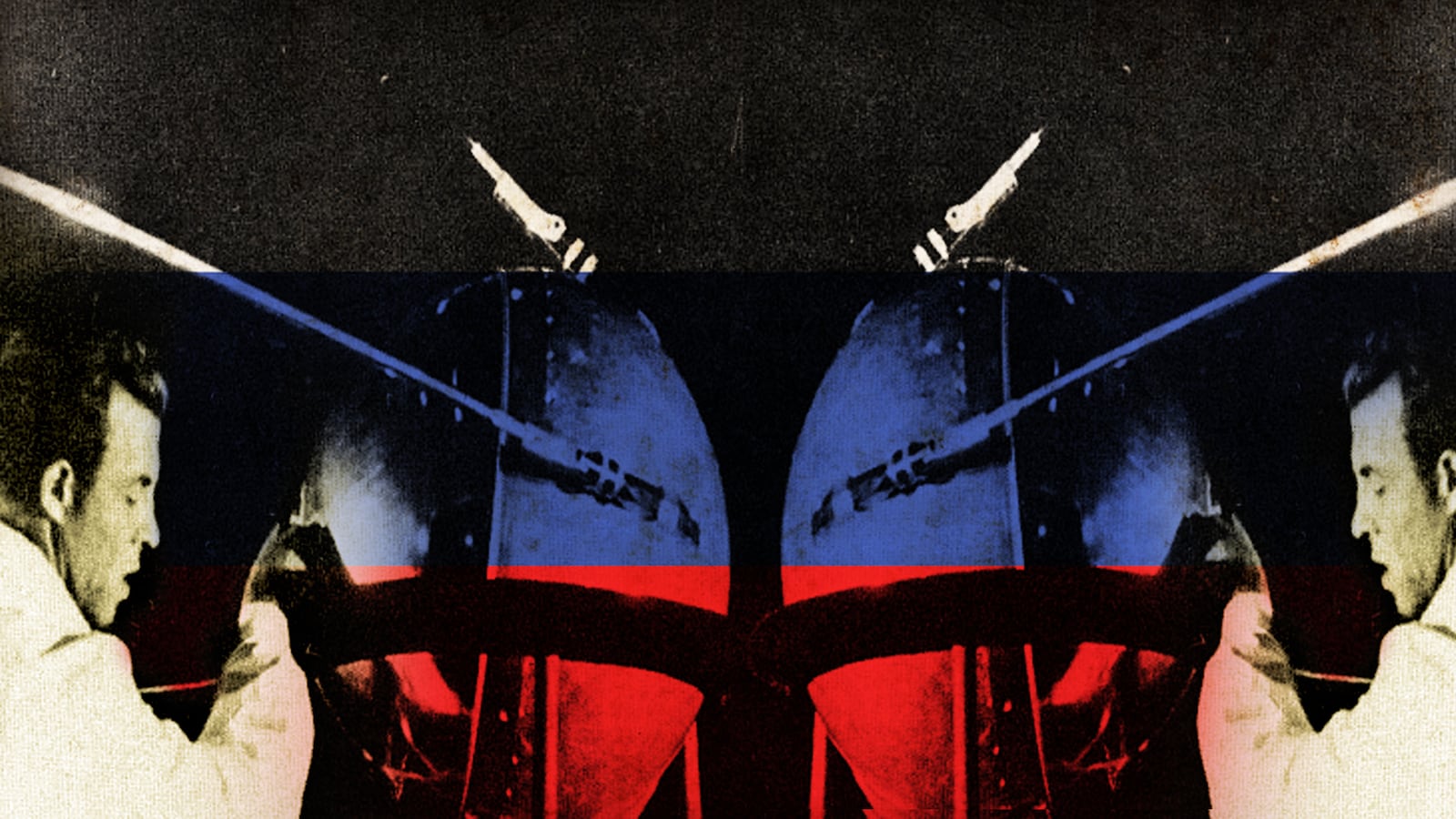Sixty years ago this fall, the Soviets invalidated the American characterization of them as “backward” by launching the world’s first artificial space satellite, Sputnik, on Oct. 4, 1957. This event inspired widespread panic in the United States when the public became convinced they were vulnerable to a Soviet nuclear attack from space.
The previously popular President Dwight Eisenhower now became the focus of angry citizens who accused him of being more interested in his golf game than in protecting the country.
But amidst all the panic and Soviet boasts was a behind-the-scenes story in which Sputnik and the space race it inspired actually benefited the United States.
Before 1957, the Eisenhower era represented the high point of Establishment support. Not since World War II had the country been so united, and although it was evenly split along Democratic and Republican lines, there was no Tourette’ Syndrome culture war as in our era.
Amazingly, from the vantage point of our anti-government zeitgeist, 85 percent of the country trusted the federal government to protect them.
The citizenry had good reason to believe this. For whatever economic differences they had, both Democrats and Republican lawmakers shared the same belief that the Soviets were not only a threat to the world but to America itself; and as a result, the two parties united around policies designed to protect the citizenry from a Soviet attack.
But the launch of Sputnik ended any sense of protection. Americans now felt vulnerable to a Soviet nuclear attack launched from space and thus believed that America was about to fatally lose the Cold War.
Democrats, out of power since 1952, sought to capitalize on the launch by characterizing the Eisenhower administration as asleep at the wheel. From this, then-Senator John F. Kennedy crafted his presidential campaign message that America under Eisenhower was stuck in a self-destructive complacency. To bolster the need to get the country “moving again” Kennedy asserted that the Soviets had nuclear superiority over America; a “missile gap” the candidate knew to be false.
It seemed like the only person not alarmed by the implications of Sputnik was President Eisenhower. Aware of previous Soviet efforts to fire manned missiles into space (courtesy of U-2 spy plane flights over Russia), the president was pacific in his statement concerning the launch, and asserted that Sputnik represented no danger to the United States.
But this did nothing to combat the image foisted on him by Democrats as much too complacent about American security. And he didn’t help matters when he neglected to tell Americans that he was protecting them through the development of long-range bombers capable of hitting the Soviet Union (this admirably combined American security with fiscal conservatism).
Nevertheless, he sought to calm a panicked America by entering a space race with the Soviets. He ordered the military to develop spacecraft and land-based defenses against a Soviet satellite attack. To create future rocket scientists, the administration made science and engineering a priority in all levels of education.
But for all the failed rocket attempts in the early ’60s, the United States actually benefited from Sputnik, as its success kept Nikita Khrushchev in power. For all his brutal crackdowns on democratic revolts in Hungary and Poland, murdering and then imprisoning East Germans trying to escape West with the Berlin Wall, and installing offensive nuclear missiles in Cuba, Khrushchev was considered “weak” by the hardliners in the Kremlin.
Remember that it was Khrushchev who validated the view that Josef Stalin was indeed a blood-soaked dictator; and that he sought a peaceful way out of the Cuban Missile Crisis in his communications with JFK. For further proof of Khrushchev’s relative “liberalism,” look at who succeeded him when he was ousted from power (because he removed nuclear missiles from Cuba as part of the agreement reached with Kennedy): Leonid Brezhnev.
Brezhnev’s tenure as Soviet premiere halted whatever meager liberalization efforts undertaken by Khrushchev and extended the Cold War with military aggression. Under the Brezhnev Doctrine, the Soviet Army brutally put down their satellite Czechoslovakia’s attempt at creating “socialism with a human face” in 1968 and invaded Afghanistan with a genocidal attack on its citizens in 1979.
During the Vietnam era, liberal and leftist Americans criticized the enormous amount of money that went into the space race, money they believed should have been used for social programs. But from the perspective of all the American lives lost in Third World quagmires, the space race provided the U.S. with a non-violent way to battle the Soviet Union. For the Soviets used their “superior” space program as proof that they were winning the Cold War (Ironically, the Soviets weren’t initially boastful about Sputnik; and it was only after witnessing the stunned American response that they used it as “proof” that they were the wave of the future and American was about to land in the dustbin of history).
In this area staked out by the Soviets, the Americans won the Cold War well before the Soviet implosion in 1989-1991; when to the embarrassment of Khrushchev, who boasted that a communist would be the first to walk on the moon, it was his bête noir Richard Nixon, who as president got the Americans to the moon first—and to add insult to injury had a plaque placed there bearing his name.






